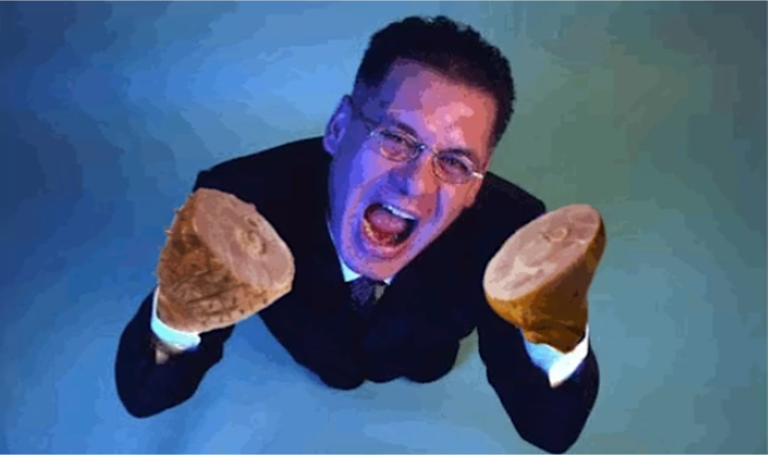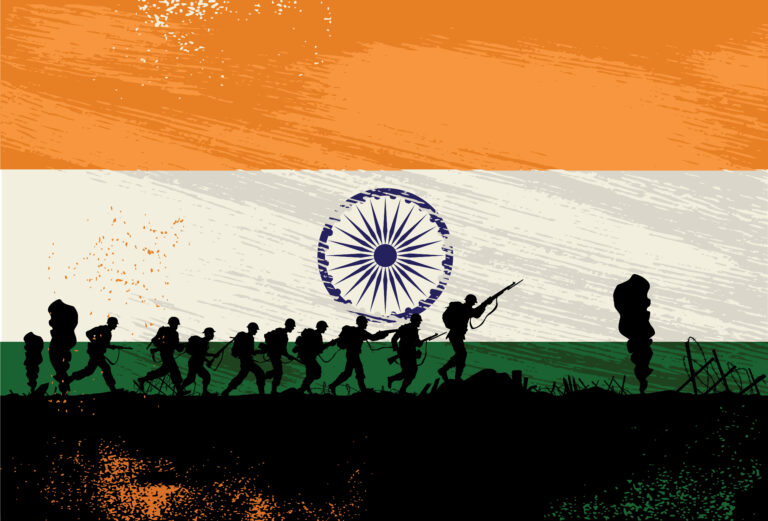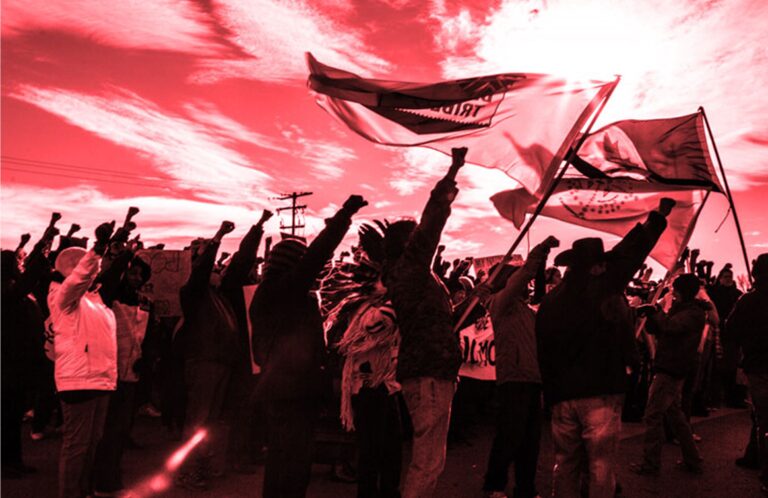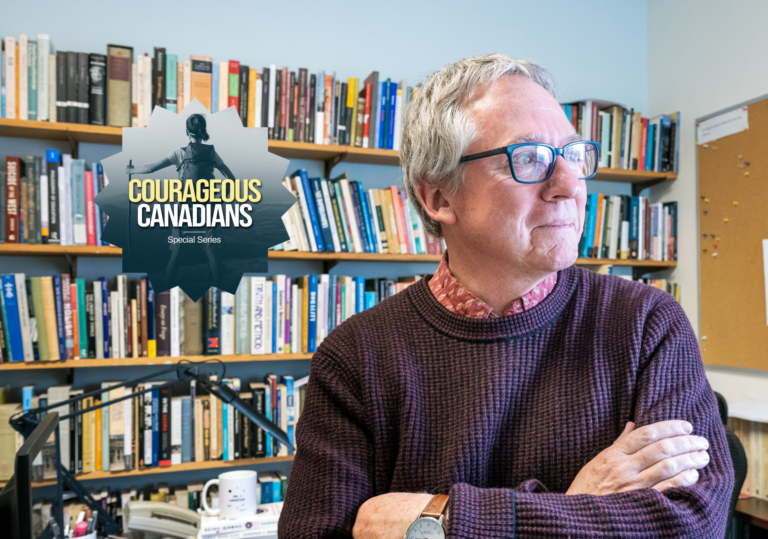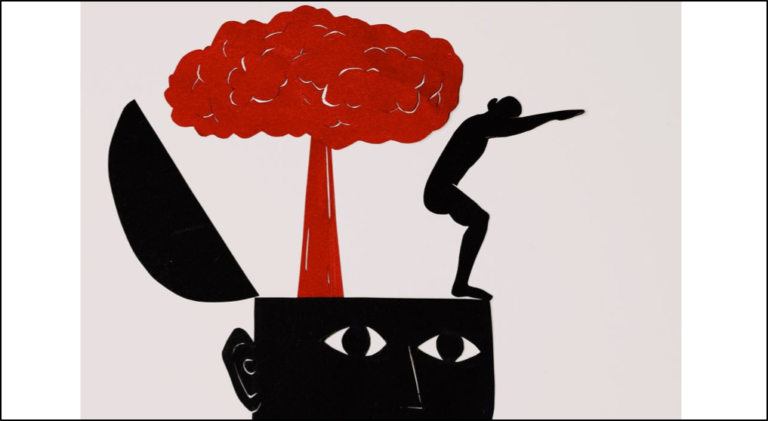Everyone agrees the Charlie Hebdo satirists did not deserve to be murdered for ridiculing Islamist extremism. But as the frequency of terrorist attacks in western countries increases, everyone also agrees we must address the radicalization that is causing so much political violence in the name of Allah. In the first of two articles below, Patrick Keeney writes that free expression must not be constrained in examining the connection between the Islamic religion and Islamist terror. In the second commentary, Peter Stockland argues that a less confrontational approach focussed on Islamist ideology, rather than the Islamic religion, is less likely to provoke more radicalization and violence.
Confronting Islamic Extremism Does Not Make You Crazy
By Patrick Keeney
“Islamophobia is a word created by fascists, and used by cowards, to manipulate morons.” – Christopher Hitchens
The terror attacks in Paris presents in stark terms the confrontation between radical Islam and the democratic freedoms we take for granted. Despite President Obama’s characterization of the Charlie Hebdo massacre as “senseless,” it was anything but: It was a measured and savage act of war, designed to intimidate journalists from criticizing Islam.
Free speech is the foundational right on which all other democratic freedoms depend, which is why an attack on a Parisian satirical newspaper is, de facto, an attack on our entire way of life. It was encouraging to see near-universal condemnation of these acts, but more crucial still is that freedom-loving people everywhere engage in a vigorous and full-throated rejection of the Islamist war on free speech. Journalists, writers, cartoonists, newspapers, news agencies and individuals must assert our hard-won democratic values, including the unapologetic right to criticize, satirize, or mock Islam and its prophet, just as we have the right to do to with any other religion or philosophical tradition.
The world can no longer ignore the obvious truth that there is a nexus between the religious ideology espoused by radical Islam and violence. As Pascal observed, “Men never do evil so completely and cheerfully as when they do it from religious conviction.” We can only hope that more leaders – especially Muslim leaders – follow the lead of President Al-Sisi of Egypt and call for radical reform within Islam. In a New Year’s speech in Cairo, Al-Sisi bravely and forthrightly confronted what many western leaders have refused to acknowledge: Namely, that various branches of Islam promote violent and lethal doctrines which add greatly to the sum of human suffering.
In a pluralist, secular society, we need to reject, tout court, any special treatment for Islamic beliefs. The foundational texts of Islam need to be subjected to the same critical analysis we bring to any set of texts which claim to be sacred. We need to treat Islam as we would any other faith. Cartoonists must be able to draw the prophet, and comics and satirists must be able to poke fun at and ridicule the true believer.
In other words, we need to re-assert the fundamental truth that in a democracy, no faith community or philosophical perspective, including atheism, is immune from criticism. Just as citizens can criticize the teachings of Christ or Buddha or Joseph Smith without being called “Christophobic” or “Buddhaphobic” or “Mormophobic”, so to should citizens have the right to critique the tenets of Islam without being labeled deranged or phobic. In a democracy, it is unacceptable that critics of Islam should be slandered as “Islamophobic.” By what right does Islam claim such special treatment?
“Islamophobia” is a duplicitous word, and one which is profoundly anti-democratic. It is a thinly veiled form of ad hominem attack which is intended to vilify the character of Islam’s opponents rather than answer their arguments. Phobias, by definition, are irrational fears. To sneer at someone as “Islamophobic” is to assert that criticisms of Islam arise from a psychological disorder rather than from an honest appraisal of Islamic scriptures and doctrine. It thus shifts debates about Islam from the argumentative give and take of civilized discourse to the world of psychopathology.
Apologists for Islam, by dismissing their opponents as “Islamophobes”, are asserting that their challengers are psychologically deranged. This relieves defenders of the faith from the bothersome task of responding to their critics in an intellectually honest fashion. One wins the argument on the cheap: all criticism of Islam can now be dismissed, no matter how informed, learned or scholarly such criticism happens to be. After all, it is much easier to marginalize and intimidate one’s interlocutors than respond to their arguments.
To assert that one’s opponents must suffer from a deranged mind is, of course, a time-worn stratagem, well loved by demagogues and intellectual bullies from across the ideological spectrum. It must be conceded that dismissing one’s adversaries as irrational is much more psychologically satisfying than engaging in a laborious exchange of ideas, a task which involves the irksome drudgery of thinking things through, challenging our own preconceptions, and who knows, maybe even changing our minds.
As priests, imams and holy men of all persuasions have long recognized, permitting the questioning of doctrinaire religious beliefs is a fraught undertaking, for once individuals have gained the freedom to question the revealed truths of their holy book, it is harder to keep the sheep in the flock. There is doubtless in Islam an awareness which recognizes just how precarious and fragile Islamic doctrine is, particularly when confronted by the critical and relentless probing of the contemporary, secular-scientific west. Perhaps this is why the 57 nations who make up The Organization of Islamic Cooperation are continuing to advocate through the United Nations for laws banning “negative stereotyping of Islam” and “human rights” codes based on Sharia Law. This is aimed at western nations, by the way, because most of the OIC’s member countries already criminalize apostasy and blasphemy.
At the risk of stating the obvious, there is nothing “phobic” about engaging our critical faculties, adjudicating a belief system, weighing the evidence, and assessing religious beliefs for ourselves. This process might lead some to the conclusion that Islam’s stance toward, say, women, homosexuals, religious minorities, or non-believers, has the potential to lead to very unpleasant and divisive social consequences. Which is, of course, precisely what many thoughtful critics of Islam have concluded. Such a conclusion will doubtless anger and offend some Muslims. But in a pluralist society which values freedom, the anger or the hurt feelings of the true believer is neither here nor there. As George Orwell put it, “Freedom is the right to tell people what they do not want to know.”
Pluralist societies must rigorously safeguard the division of church and state. While Islam, like every other belief system, is entitled to make its case in the public square, it will, by the same token, be called upon to give an account of itself. Like the Apostle Paul pleading for his new religion before the citizens of Athens, Muslims are invited to explain and defend their faith in the agora. Like Paul, they will doubtless find converts. But they will also be confronted with their own set of Athenian skeptics who, in demanding answers to difficult and inconvenient questions, will remain unmoved and unreceptive. Some such critics may even engage in a wholesale condemnation of the Muslim belief system.
There are no doubt those who are “phobic” about Islam, just as there are those who have an irrational and obsessional hostility towards cats, hospitals, being buried alive, walking in open spaces, or the writings of J.S. Mill. And, as with every topic under the sun, there will no doubt be criticism which is ignorant and ill-informed. But so what? Freedom of expression is not reserved exclusively for the right-thinking. Even phobics and the ignorant are guaranteed the freedom to have their voices heard.
When critics reject or disparage Islam, as is only to be expected in an open society, the only reasonable response for believing Muslims is to resign themselves to the fact. This is the cost of living in a pluralist and open society. To label anyone who is ill-disposed to Islam as an “Islamophobe”, is to do a grave disservice to free and rational enquiry. Ultimately, it is to erode those very freedoms which are the sine qua non of the modern democracies. In the secular societies of the west, Islam simply cannot claim any special dispensation which renders it immune from the scrutiny of skeptics, non-believers or even hostile critics. Muslims must be prepared to endure the rejection, and even the scorn and ridicule of those who deny that Islam is the final, revealed word of God.
Democracy is the natural enemy of what Orwell called the “smelly little orthodoxies,” by which he meant those dogmas and certainties which erode and debase civic society, and which, more often than not, manifest themselves in great brutality and cruelty, as the horrific events in France attest. The liberal west needs to engage in an honest, open, and responsible dialogue about and with Islam, which means among other things that we need to do away with the anti-democratic notion that those who criticize, satirize, or lampoon Islam suffer from a deranged mind. We need, in other words, to retire that most duplicitous and anti-democratic of epithets, “Islamophobia.”
Cartoonists ignored the virtue of prudence
By Peter Stockland
The tone of reconciliation on last week`s new cover of Charlie Hebdo points to what seemed lost after the previous week’s murderous attack: recognition of the essential distinction between fear and prudence.
Until the satirical newspaper’s image conflating Muhammad and forgiveness, we had been floating — floundering? — on waves of feel-good support for freedom of expression and group solidarity for the journalists slain in the Charlie Hebdo newspaper offices.
Millions marched in Paris and other cities, of course, declaring “I Am Charlie” as a means of making common cause with the dead. The outpouring of symbolic cartoonist pencils being held aloft has already prompted a riposte of sorts from those who question its authenticity, never mind its effectiveness. For example, The American Conservative magazine’s Rod Dreher blogged last week that such proclamations are mere kitsch, easy sentimentalizing on par with crying for starving children a world away.
The Calgary Herald’s Licia Corbella has argued Canadians cannot rightly lay claim to Charliehood because we have been too cowardly to publish cartoons that have been forced into the very heart of international news stories as a result of violence by Islamists.
(The French National Front’s former leader, Jean-Marie Le Pen, declared he is not Charlie either; his rationale was so convoluted, even for a French politician, that most Parisians simply ignored him.)
Concern for identifying authentically with the victims of such ghastly killings is entirely understandable. What is being crowded out is serious debate around the far more critical matter: what are we to do next?
For whether we are all Charlies or chuckleheads, the reality is we are prime targets of a wicked, violent, ubiquitous ideology. Ideology. Not religion. Huge difference.
Population sample of two: My son, who lives in Paris, cancelled an appointment the day of the Charlie Hebo shootings. Had he gone, he would have been walking down the street outside the newspaper just as the gunfire began. Meanwhile, I was headed out the door of my Ottawa apartment on the day when Parliament Hill was assaulted last October. I was, in fact, headed to Parliament Hill. A phone call delayed me or I, too, would have been there when the shooting began.
Here we are, father and son, separately going about our daily business in very different places at very different times, yet both missing, by sheer chance, straying into the line of fire.
Our near-misses were, in actuality, trivialities compared to the risks and realities that have faced thousands upon thousands across the western world since so-called radicalized distorters of Islam declared open season on our citizens and our cities. What is not trivial at all is the emergent realization that the states we rely on for protection are helpless to protect us. As effective as our intelligence services may otherwise be, they clearly haven’t a clue how to stop the threat from random Islamists. How could they when the perpetrators are just like any other Charlie on the block?
The true question emerging out of the Paris shootings then (or more correctly, being avoided in their aftermath) is this: Why knowingly provoke psychotically enraged young men bereft of hope who are actively being cultivated by our enemies as mobile weapons against us?
That, in essence, is what the cartoonists at Charlie Hebdo did. Repeatedly. For years. It is not blaming the victims to say so. Of course they did not deserve to be murdered for being provocateurs. No one deserves to die for a drawing.
But they did draw fate toward themselves by failing to distinguish between being silenced by fear or made circumspect through prudence. Their prudence in reaching out a hand to Muslims will not make them — or us — bullet proof. Still, it can only help us renew a vital distinction too long lost.


